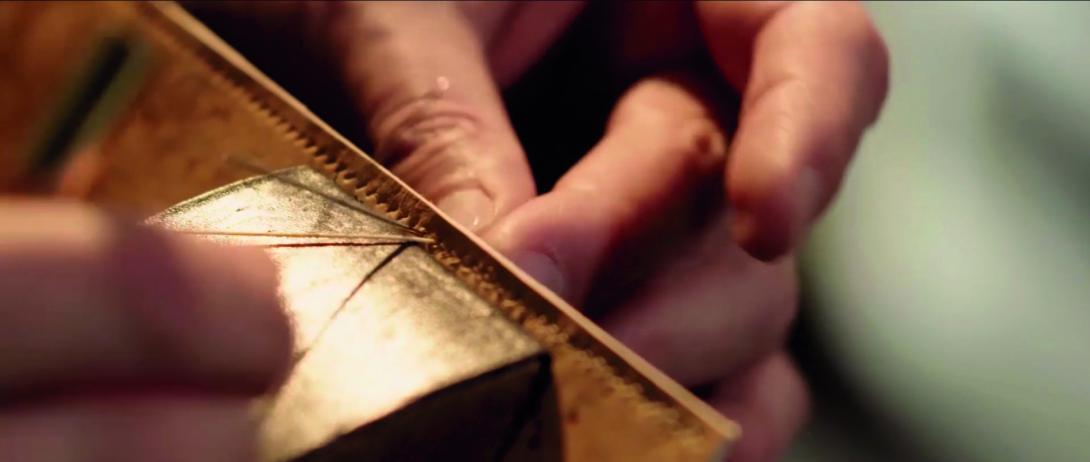
Photo by mycoworks.com
Leather alternatives are often made out of plastic—not exactly an environmentally friendly choice. Yet now there’s a new approach that has caught the attention of big companies.
The California-based company MycoWorks produces plant-based leather made out of mushrooms. Called “mycotecture,” it is created from a substance called mycelium, the fungal network that forms the root structure of mushrooms.
Philip Ross, an artist based in the Bay Area, experimented with creating a structure out of mushroom spores back in 2007. After several shows, companies got interested in the technology so much that Ross decided to co-found the company MycoWorks with Sophia Wang, then a PhD student at UC Berkeley.
Eventually the company focused on producing a material that looked like leather but was 100% plant-based. According to the New York Times, it was called Reishi, after the Japanese name for the genus of mushrooms that Ross first used.
Reishi has the strength, durability and performance of traditional leather, according to the MycoWorks website. The result differs from other types of vegan leather made with mushrooms, which already exist. Most mushroom leather is made from a compressed solid foam that mycelium forms naturally but, without engineering, it lacks the same look and feel as other animal and synthetic leathers.
Reishi instead found the approval of the fashion industry, eager to meet clients’ demand of vegan leather alternatives to plastic. There are big names among those offering products made with Reishi.
In March 2021, luxury fashion brand Hermés debuted their Victoria bag, which featured MycoWork’s Fine Mycelium material, reports Olivia Rosane for EcoWatch. Other companies, including Adidas, with their Mylo-made Stan Smith shoes, and Lululemon, with their mushroom-based yoga products, have also jumped on the eco-friendly bandwagon, per Refinery29.
The company MycoWorks, whose headquarters are in Emeryville, Calif., has obtained more than 75 patents and now has over 160 employees in the U.S., France and Spain, as the New York Times reported. It has also secured collaborations with high-end companies like Hermès and, most recently, the furniture maker Ligne Roset and GM Ventures, the investment arm of General Motors.
Mushrooms are not the only plants that could be used for a leather alternative: the company Ananas Anam creates a natural textile called Piñatex from waste pineapple leaf fiber, and Adriano Di Marti invented Deserttex, a soft leather-like material derived from cactuses that can be used in the fashion and furniture industries.
Reishi seems to mimic leather better than other vegan alternatives, yet has critics because MycoWorks serves mostly high-prized luxury brands right now. However, the product is produced without any sorts of plastic and uses natural substances for tanning, too.
The company is currently erecting a 150,000-square-foot plant in Union, S.C. By the end of 2023 it will start producing Reishi on a large scale, thinking of future clients who want to use vegan leathers for products that every consumer can afford.
MycoWorks is not the only company that is using mushrooms to produce faux leather. Bolt Threads, also California-based, offers a similar product and works with Stella McCartney, Adidas and Mercedes.
There might be more to come from the tiny fungi that could soon be not only under, but also around our feet.













